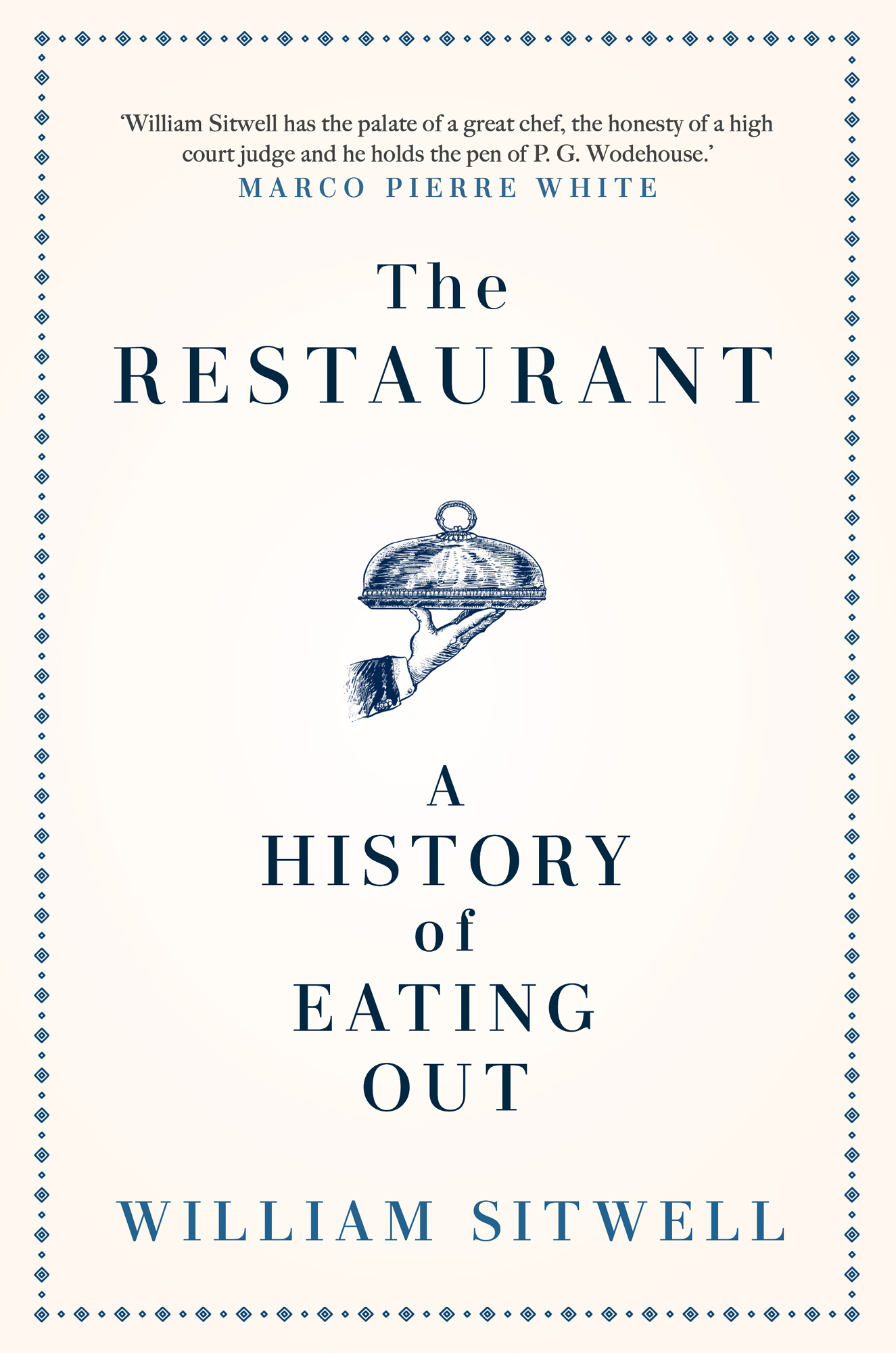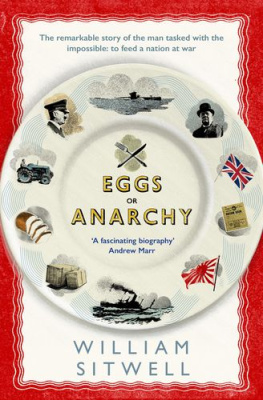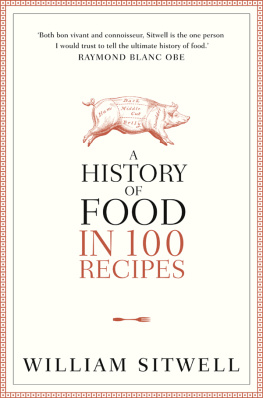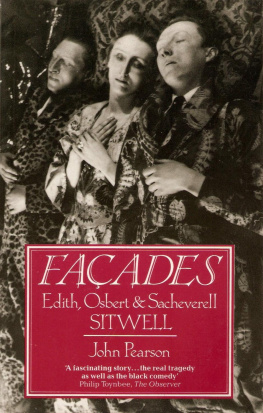William Sitwell - The Restaurant: A History of Eating Out
Here you can read online William Sitwell - The Restaurant: A History of Eating Out full text of the book (entire story) in english for free. Download pdf and epub, get meaning, cover and reviews about this ebook. year: 2020, publisher: Simon & Schuster UK, genre: Detective and thriller. Description of the work, (preface) as well as reviews are available. Best literature library LitArk.com created for fans of good reading and offers a wide selection of genres:
Romance novel
Science fiction
Adventure
Detective
Science
History
Home and family
Prose
Art
Politics
Computer
Non-fiction
Religion
Business
Children
Humor
Choose a favorite category and find really read worthwhile books. Enjoy immersion in the world of imagination, feel the emotions of the characters or learn something new for yourself, make an fascinating discovery.
- Book:The Restaurant: A History of Eating Out
- Author:
- Publisher:Simon & Schuster UK
- Genre:
- Year:2020
- Rating:5 / 5
- Favourites:Add to favourites
- Your mark:
- 100
- 1
- 2
- 3
- 4
- 5
The Restaurant: A History of Eating Out: summary, description and annotation
We offer to read an annotation, description, summary or preface (depends on what the author of the book "The Restaurant: A History of Eating Out" wrote himself). If you haven't found the necessary information about the book — write in the comments, we will try to find it.
The Restaurant: A History of Eating Out — read online for free the complete book (whole text) full work
Below is the text of the book, divided by pages. System saving the place of the last page read, allows you to conveniently read the book "The Restaurant: A History of Eating Out" online for free, without having to search again every time where you left off. Put a bookmark, and you can go to the page where you finished reading at any time.
Font size:
Interval:
Bookmark:



For Emily and Walter
First published in Great Britain by Simon & Schuster UK Ltd, 2020
A CBS COMPANY
Copyright William Sitwell, 2020
The right of William Sitwell to be identified as the author of this work has been asserted in accordance with the Copyright, Designs and Patents Act, 1988.
Simon & Schuster UK Ltd
1st Floor
222 Grays Inn Road
London WC1X 8HB
www.simonandschuster.co.uk
www.simonandschuster.com.au
www.simonandschuster.co.in
Simon & Schuster Australia, Sydney
Simon & Schuster India, New Delhi
The author and publishers have made all reasonable efforts to contact copyright-holders for permission, and apologise for any omissions or errors in the form of credits given. Corrections may be made to future printings.
A CIP catalogue record for this book is available from the British Library.
Publishing Director: Iain MacGregor
Senior Editor: Melissa Bond
Design: Keith Williams, sprout.uk.com
Hardback ISBN: 978-1-4711-7961-7
eBook ISBN: 978-1-4711-7963-1
T he tentacles of inspiration wrap around the world; they cross continents, they infiltrate cultures and they instil themselves in peoples minds. They also curl themselves along the course of history. Sometimes the tentacles pause; sometimes they seem to stop altogether, before springing up centuries later and in a very different place.
Those tentacles those roots of the restaurant story I will endeavour to describe in this book.
From the ancient to the futuristic, there are few things quite as multifarious as a restaurant. It is a business, a hobby, a passion and a calamity. Between a restaurateur and a chef, or the two combined, it takes ingenuity, business acumen, creativity, technical expertise, design or artistic sensibility, accounting sense, literacy, people skills, public relations proficiency, marketing know-how, negotiating talent and it helps if you can cook.
Restaurants can be dreamt up in a passion and gobbled up in a frenzy. They can be wild successes or horrendous failures. As many fortunes have been made, many people have been ruined.
The history of eating out is a story of politics, of terror, of courage, of madness, of luck, of innovation, of art, of love and of quiet, earnest endeavour.
It is a story that could be explained by simply studying individuals with unique attributes, whose passions and foresight saw them open extraordinary places, implement novel kitchens, or settle on a manner of service or a style of food that changed the way many of us ate.
And, across the pages of this book, you will find such people. There is the amazing fourteenth-century Ibn Battuta, who journeyed and ate out in forty countries over thirty years, bringing home ideas and writing about his culinary adventures for people to learn from. And the nineteenth-century Frenchman, Marie-Antoine Carme, who created serious distinction between the food of the professional kitchen and that of the home.
Youll meet Juvencio Maldonado, a Mexican-born immigrant in New York City, whose patented taco machine from 1951 unleashed a fast-food craze. And Yoshiaki Shiraishi, whose 1958 sushi conveyor belt revolutionised the eating of fish.
There are the Roux bothers, Albert and Michel, who transformed the bleak dining scene of postwar Britain as they opened Le Gavroche in London in 1967, training and inspiring generations of chefs. And Alice Waters, who, with her US counterculture restaurant Chez Panisse in California, attempted to beat down the beasts of fast food with her love of the farmer and the seasons.
These men and women have influenced others in countries thousands of miles from their own. Millions have tasted their personal philosophies, wittingly or unwittingly, for good or ill.
But, if this book rests on the great man/woman theory, it also firmly posits the theory of unintended consequences. The French revolutionary Maximilien Robespierre did not foresee that his politics or bloody methods of implementing them would usher in an era of fine dining. Nor did Richard and Maurice McDonald predict that their businesss spiral into a global monster would inspire people like Alice Waters to create a completely opposite type of restaurant.
Intended or not, restaurants have been instruments and symbols of transformation. They can signpost both the decline and success of a nation or, indeed, an empire. The extraordinary sophistication of the dining scene of ancient Pompeii was indicative of the Roman Empires vision, breadth, sophistication and prosperity. The bleak restaurant scene of the United Kingdom after the Second World War showed quite how the horrors and disruption of conflict had damaged both the countrys food culture and palate. Fast-forward to 2018, Londons status as a global player was exemplified by its dining scene this time in a positive light. In the words of the restaurateur and designer Sir Terence Conran, the UK capital went from a culinary joke to being the absolute envy of the world.
Yet Conrans view reflects another theme in the story of restaurants: the constant fantasy of the glory of the present. Writers frequently assert that there is no better time to dine out than now, but, some twenty years before Conrans remarks, in 1997, The Good Food Guide pronounced that there has never been a more exciting time to eat out.
And what of the much-maligned restaurant scene in the decades of postwar Britain? The film director and Sunday Times newspaper critic Michael Winner once referred to it as: The golden period of the 1950s, when food tasted like it was meant to be.
In 1791, Samuel Johnson wrote that there is nothing which has yet been contrived by man, by which so much happiness is produced, as by a good tavern or inn. So the food cant have been too awful then. And how about in 1170, when William Fitzstephens Description of London talked of a public eating house, open day and night, where every thing desirable is instantly procured?
If it were true that eating out only became worth thinking about relatively recently, the story would be a rather narrow one. But I dont believe that and, if you travel back a few thousand years with me, I might be able to convince you, too. While some of the tales might be considered more eating away than out, I still think they are relevant, as the graduation from away to out influenced the restaurants of the future.
Of course, the modern world, with its possibilities of communication and travel, means that millions are now lucky to have developed much broader and experienced palates. And that heightens the symbolism of the restaurant, for many of us can now judge a nation by its food. Indeed, a restaurant alone can provide people with a reason to travel. Restaurants have become as vital to culture as museums, art, nightclubs or beaches, and are now just as crucial as the landscape, the people or climate of a country.
But, while restaurants are a reason to travel, they are also a reason not to. If you live in a city with brilliant vendors of the cuisine of India, China, Japan, Peru, France or Italy, then why bother getting on a plane? In the words of the British writer Nicholas Lander: Menus represent the least expensive form of travel.
Font size:
Interval:
Bookmark:
Similar books «The Restaurant: A History of Eating Out»
Look at similar books to The Restaurant: A History of Eating Out. We have selected literature similar in name and meaning in the hope of providing readers with more options to find new, interesting, not yet read works.
Discussion, reviews of the book The Restaurant: A History of Eating Out and just readers' own opinions. Leave your comments, write what you think about the work, its meaning or the main characters. Specify what exactly you liked and what you didn't like, and why you think so.






